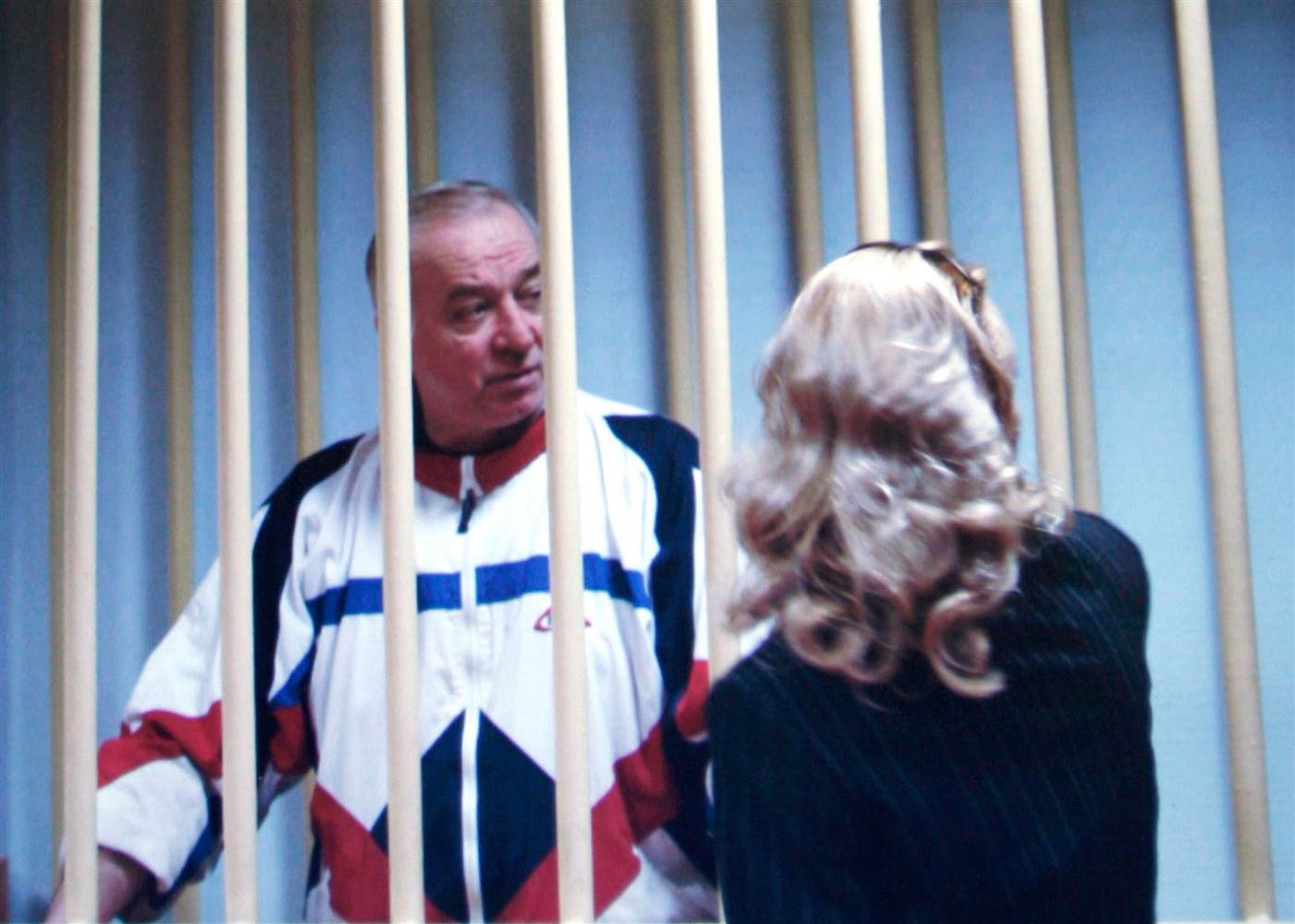Russian President Vladimir Putin has advised Britain to deal with the poisoning of former GRU military intelligence agency officer Sergei Skripal in the U.K. before discussing the case with Moscow.
"You get to the bottom of this for yourselves, and then we will discuss this with you," Interfax news agency quoted Putin as saying in the southern city of Krasnodar on Monday.
Hot on the heels of Putin’s brief reaction to the poisoning incident, Foreign Minister Sergei Lavrov denied any role in the case and rejected British demands that Moscow explain why a Russian-made nerve agent was used in the poisoning of former spy Sergei Skripal and his daughter Yulia Skripal in Salisbury, on March 4.
Under the Convention on the Prohibition of Chemical Weapons, Britain was obliged to immediately appeal to a country suspected of using the substance, Sergei Lavrov told a news conference in Moscow on Tuesday, adding that Russia did not receive an inquiry from Britain for the substance allegedly used for the poisoning.
"If we are talking about what Great Britain is obliged to do in accordance with the Chemical Weapons Convention, it is as follows: First, immediately after suspicions emerge that a toxic substance banned by the convention was used, one needs to immediately contact the country that is suspected of being the country of origin of the substance, and a response to this enquiry is given within 10 days,” Lavrov explained.
“If the country that requested information is not satisfied with the response, then this country, in this case Great Britain will need to appeal to the executive council of the Organization for the Prohibition of Chemical Weapons and the conference of the member states of the Chemical Weapons Convention,” he said.
The Russian foreign minister also added that the side that received the request has the right to get access to the substance in question, in order to be able to carry out its own analysis. Lavrov blamed the British government for a rumor that a substance made in Russia was used in the poisoning of the Skripals.
“Russia sent an official note requesting an access to this substance, so that our experts could analyze it in accordance with the Chemical Weapons Convention,” Lavrov said, adding that Russia is also inquiring into the facts regarding Yulia Skripal, who was a Russian citizen.
Russia accuses the U.K. of not providing it with access to the substance, nor sufficient information, saying British officials are being vague in their responses to the Kremlin’s inquiries.
On March 13, the British ambassador to Russia, Laurie Bristow, was summoned to the Russian Foreign Ministry, where Russian First Deputy Foreign Minister Vladimir Titov expressed, “a resolute protest against the sweeping accusation by the British government of Russia's involvement in the poisoning of Sergei Skripal and his daughter Yulia.”
Titov blamed the British government of open provocation, rejecting any role of Russia in the poisoning. The Russian diplomat reiterated that Moscow would not respond to London's ultimatum until it is presented with samples of the chemical substance that the British investigation is referencing.
Without this, Titov said, all statements by London were meaningless and Moscow viewed the incident as another sordid attempt by the British government to discredit Russia. Titov warned that any attempt by the U.K. to slap new sanction on Russia would not go without retribution.
The Russian embassy in London urged Britain to consider the consequences of any attempt to launch a cyberattack on Russia, which have been mentioned in the British parliament and in the media, according to reports by Russia’s RIA Novosti published on March 13.
Earlier, The Times, citing a cabinet source, said London was considering a secret cyberattack against Russia over the poisoning of the former spy.
"Statements by several MPs and also media reports, citing sources in the government about possible use of 'offensive cyberattack potential' cause serious concern. Judging by Prime Minister Theresa May's statement, such a decision could be taken as soon as tomorrow at the meeting of the National Security Committee. We call on Britain once again to weigh up the consequences of such a reckless decision," the Russian embassy said in a statement.
One cannot intimidate Russia, let alone speak the language of ultimatums with the country that has a powerful arsenal of nuclear warheads, Foreign Ministry Spokeswoman Maria Zakharova said in a comment meant to hit back at British Prime Minister Theresa May's remark that Moscow was "highly likely" behind the poisoning of an ex-spy.”







 President Ilham Aliyev shed light on the evolving contours of the peace process with Armenia during an international conference in Baku this week. ...
President Ilham Aliyev shed light on the evolving contours of the peace process with Armenia during an international conference in Baku this week. ...
 Azerbaijan and Armenia started the process of demarcation of their border on Tuesday, with the installation of the first border markers based on ge...
Azerbaijan and Armenia started the process of demarcation of their border on Tuesday, with the installation of the first border markers based on ge...
 Iran has refuted reports of alleged damage to Shimon Peres Negev Nuclear Research Centre located southeast of Dimona, Israel, during the recent air...
Iran has refuted reports of alleged damage to Shimon Peres Negev Nuclear Research Centre located southeast of Dimona, Israel, during the recent air...
 Iran and Pakistan have signed eight cooperation documents in various fields, and agreed to strengthen ties to fight terrorism in the region.
Iran and Pakistan have signed eight cooperation documents in various fields, and agreed to strengthen ties to fight terrorism in the region.



